
The year has come to an end and it's time to look back some of the fine moments that it's leaving behind to relieve them. The year has marked several scientific discoveries and releases, starting from aliens to migratory birds. However, among the numerous achievements, some got etched in the history of science with golden letters. It has truly been a mixed bag, including social and behavourial sciences, climate change, biology and, of course, astronomy. So, here are 10 of the most popular science news of the year:
EurekAlert compiled a list of the news releases related to science, which broke all the records of previous years in terms of popularity.
- Clear the air: The most popular science news, which attracted the audience the most this year came from the University of Central Florida. One Fernando Uribe-Romo, an assistant professor of the university, along with his team of experts, discovered that how artificial photosynthesis can be activated in a synthetic material. The process is capable of turning harmful greenhouse gases (such as carbon dioxide, carbon monoxide etc) into the purified air and also generating energy, simultaneously. "This work is a breakthrough. Tailoring materials that will absorb a specific color of light are very difficult from the scientific point of view, but from the societal point of view we are contributing to the development of a technology that can help reduce greenhouse gases," stated Professor Uribe-Romo. The study was published in the Journal of Materials Chemistry A.
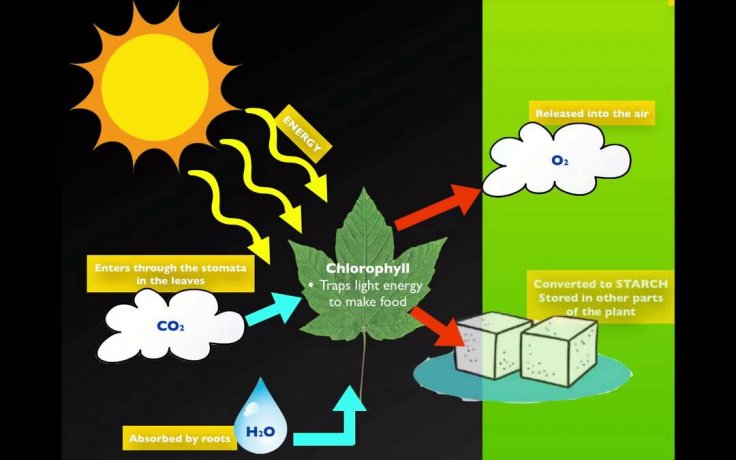
YouTube - Climate change is real: The next news on the list to grab eyeballs was about climate change and how it is affecting migratory birds. A research showed that the dangerously high level of climate change is shifting the seasonal clocks of nine species of migratory songbirds. The study, published in Scientific Reports, mentioned that these birds are failing to reach their northern breeding ground on schedule, which is affecting their capabilities to produce healthy offspring. The change is significant because, in turn, it would also affect the survival of several commonly known backyard birds as well. This is happening because across several regions worldwide the "spring-like conditions" are occurring way before the arrival of these birds. "The growing mismatch means fewer birds are likely to survive, reproduce and return the following year. These are birds people are used to seeing and hearing in their backyards. They're part of the American landscape, part of our psyche. To imagine a future where they're much less common would be a real loss," stated a researcher from the Florida Museum of Natural History at the University of Florid, Stephen Mayor, who is also the first author of the study.
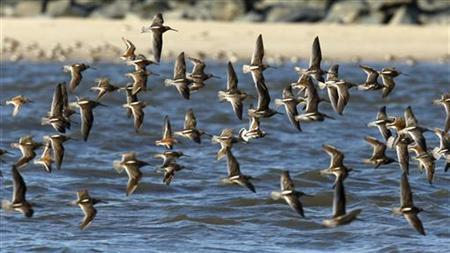
Reuters - One gene at a time: The next one on the line is gene therapy. Progress on this field showed particularly significant promises, as a new study, published in Molecular Therapy, showed how it can restore muscle strength and increase the lifespan of dogs with a previously terminal neuromuscular disease, which is an inherited ailment that many dogs suffer from. This rare disorder, namely myotubular myopathy, occurs in the canines due to a typical mutation in their genes. Other than dogs it also affects human males and both of them, suffering from this disease, ultimately succumb to death. Four groups of researchers from France and the United States discovered a safe way to replace the affected gene with a healthy one in the dogs.
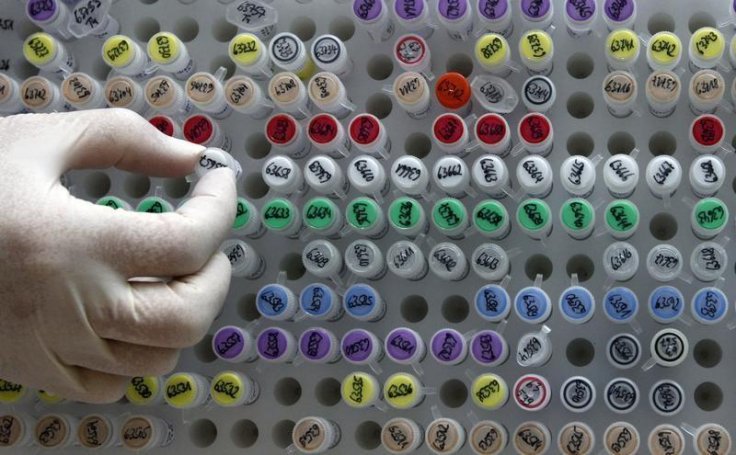
Reuters - Save yourself: The National Center for Children in Poverty (NCCP) of the Columbia University's Mailman School of Public Health, after deriving data from American Community Survey, concluded in a study that among all the currently living generations, children are most likely to live a life in poverty. "While food assistance, public health insurance, and other programs have certainly had a mitigating effect on poverty for many families, the fact remains that in the United States young children have close to a one in two chance of living on the brink of poverty," stated the director of NCCP Renée Wilson-Simmons, DrPH. Basic Facts About Low-Income Children, by NCCP, showed what are the conditions that the poor children across America face and how severe they are.

Reuters - Effective or a waste of time: Diversity training programmes are usual nowadays in almost every organization. However, a new study, published in the Psychological Bulletin, showed that although they increase awareness about different cultures, these programmes do not show much success in changing people's attitude towards co-workers from different cultures. According to the UB School of Management's associate professor of organization and human resources, Kate Bezrukova, PhD, while this training has huge potential to make a "positive impact", if not executed "thoughtfully", it may also "backfire and reinforce stereotypes." The study, conducted by Bezrukova and her team, discovered that diversity training leaves the most successful impact if it's compulsory, combined with interesting tasks, devised to boost expertise as well as awareness and performed for a long period. They also found out that the participants' responses were more positive if the training methods were diverse, including discussions, exercise, lectures and various instructions.

Reuters - Mind your tongue: One may learn two languages from a young age and still become proficient in one and not so much in the other. A study, conducted by researchers from the Florida Atlantic University, showed that in bilingual children each of the language proceeds with its own pace independently, reflecting how much the child has been exposed to each of the languages. The study, published in the Developmental Science, also discovered that Spanish language skills take a toll if the child becomes efficient in English; however, the English language doesn't get affected if the Spanish language skills take over. "If it's something internal that paces language development then it shouldn't matter if it's English or Spanish, everything should be related to everything. On the other hand, if it's dependencies within a language of vocabulary and grammar or vice versa then the relations should be language specific and one should predict the other. That is a child's level of grammar should predict his or her future growth in vocabulary or vice versa," stated the lead author of the study Erika Hoff, Ph.D., who is also a professor of psychology at FAU's Charles E. Schmidt College of Science as well as the director of the Language Development Lab. At last, it turned out that the data from the research were more compatible with the later conclusion – something external effects the growth of language skills in a child and most likely that external thing is the amount of exposure that a child gets for each language.

YouTube - Go green: The next science discovery, which received huge traction, actually tells something very normal yet significant – if one is surrounded by greenery and birds, he/she is more likely to have a better mental health. According to the study, conducted by researchers from the British Trust for Ornithology, the University of Queensland and the University of Exeter, studied over 270 people vigorously and concluded that people who could see more birds during the afternoon are less likely to suffer from anxiety, depression or stress. "This study starts to unpick the role that some key components of nature play for our mental well-being. Birds around the home, and nature in general, show great promise in preventative health care, making cities healthier, happier places to live," stated the lead author of the study Dr. Daniel Cox. The findings of the research were published in the journal BioScience.

Reuters - Eat your veggies: Are you suffering from high blood pressure? Well, this one's definitely for you. There are no substitutes of fruits and vegetables to keep one's body healthy - we have been hearing it since our childhood. Now, it appears that fruits and vegetables, mainly the ones with lots of potassium in it, are even capable of lowering high blood pressure. According to a professor of cell and neurobiology at the University of Southern California's Keck School of Medicine, Alicia McDonough, PhD, avocados, spinach, sweet potatoes, bananas, and most significantly, coffee are possibly the key to fight hypertension, a disease that causes minimum 45% deaths due to heart related diseases and 51% due to stroke (as per WHO). McDonough's research, published in the American Journal of Physiology-Endocrinology and Metabolism, concluded that eating more potassium can lower the blood pressure, no matter the intake of sodium. "When dietary potassium is high, kidneys excrete more salt and water, which increases potassium excretion. "Eating a high potassium diet is like taking a diuretic, stated Professor McDonough.
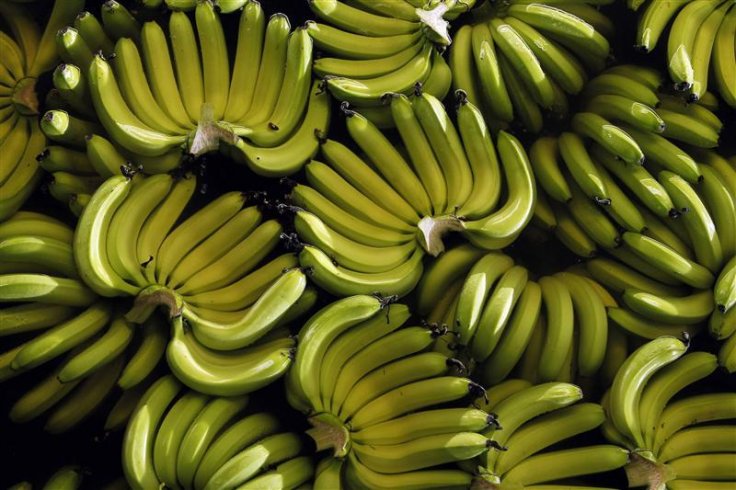
Reuters - Being watched by our neighbours, in space: We are talking about popular news and aliens won't make it? That's preposterous. As per a new study, conducted by experts from Germany's Max Planck Institute for Solar System Research and the Queen's University Belfast indicates that it's possible that we, the Earthlings, are being watched by intelligent extraterrestrials. The study found out that minimum nine exoplanets are out there in the universe, which are placed perfectly to monitor Earth's transit. We have identified thousands of exoplanets by observing the brightness of their host stars. The researchers in this study reversed the concept and tried to answer the question "How would an alien observer see the Solar System?" It's simple actually. The extraterrestrials, if there are any, can easily detect the planets of our solar system just like how we detect theirs – by observing the dip in Sun's brightness. The researchers also concluded that Venus, Mercury, Mars and, yes, Earth are the planets that the aliens are most likely to spot.

NASA - Looking forward: The last but definitely not the least on the list of most popular science news of the years is that the scientists have finally found a key to regenerate blood vessels. Thanks to several science fictions (we love the regenerations of Dr. Who; isn't it?) we are now familiar with the term regeneration. While humans have not yet reached to the full body regeneration but we have already taken the first steps. A study this year, which was led by some experts from the Sanford Burnham Prebys Medical Discovery Institute, found out a "signaling pathway," which is significant for growing new blood vessels from the pre-existing ones. The process is known as angiogenesis. "Our research shows that the formation of fully functional blood vessels requires activation of protein kinase Akt by a protein called R-Ras, and this mechanism is necessary for the formation of the hallow structure, or lumen, of a blood vessel. The findings are important because they shed new light on the biological process needed to increase blood flow in ischemic tissues," said one of the researchers of the study, Masanobu Komatsu, Ph.D., who is also an associate professor at SBP. This breakthrough could lead to a more effective way of treating ischemia. The findings were published in the Science Daily.
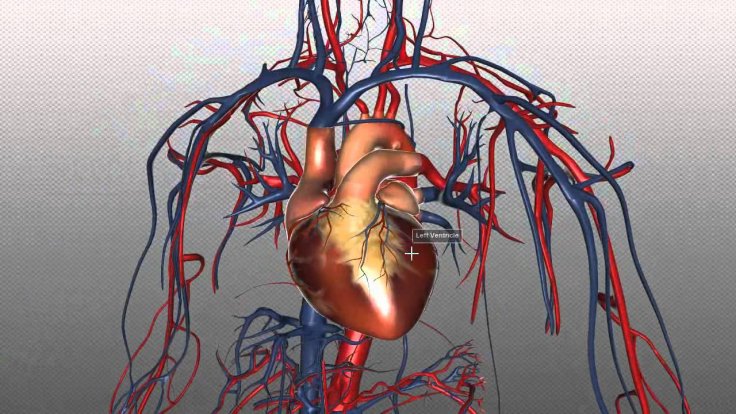
YouTube









